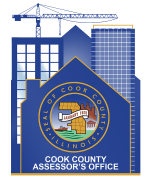What Is a Veterans with Disabilities Homeowner Exemption?
Veterans with a service-connected disability as certified by the U.S. Department of Veterans Affairs are eligible for this annual exemption. It reduces by certain amounts the Equalized Assessed Value (EAV) on a disabled veteran's primary residence, very likely lowering the tax bill.
It is very important to note that the Equalized Assessed Value (EAV) is not the amount of your taxes. The EAV is only the partial property value on which your taxes are computed; any reduction in EAV is not the dollar amount by which your tax bill may be lowered.
Veterans whose level of disability is as little as 30% are eligible for a deduction from the EAV of their primary residence. The amounts of those EAV deductions range from $2,500 to $5,000. Also, veterans 70% or more disabled are totally exempt from property taxes.
Exemption amounts for the Veterans with Disabilities Homeowner Exemption are:
| Taxable Years | Percentage of Disability | Exemption Amount* | |
| |
| 2011-2014 (Tax Years) | 70% and greater | $5,000 | |
| | 50-69% | $2, 500 | |
| | | |
| 2017 and thereafter (Tax Years) | 30%-49% | $2,500 | |
| | 50%-69% | $5,000 | |
| | 70% and greater | Total Exemption | |
| | | | | | | |
What criteria makes someone eligible for the Disabled Veterans Homeowner Exemption?
To qualify, the veteran must be:
- an Illinois resident who has served as a member of the United States Armed Forces on active duty or State active duty, a member of the Illinois National Guard or U.S. Reserve Forces and has been honorably discharged,
- have at least a 30% service-connected disability certified by the U.S Department of Veterans Affairs,
- own and occupy the property as the primary residence in 2019,
- have a total EAV of less than $250,000 for the primary residence, excluding the EAV of property used for commercial purposes or rented for more than six (6) months and
- apply for this exemption each tax year
A non-remarried surviving spouse of a disabled veteran may continue to receive this exemption if the same primary residence continues as such for the surviving spouse. Or, the non-remarried surviving spouse may transfer the exemption amount (or less) to a new primary residence.
What additional documentation do I need to submit with my Disabled Veterans Homeowner Exemption Application?
Veterans must complete the Exemption Application and return to the Cook County Assessor's Office (118 N. Clark St., Room 320, Chicago, IL 60602) and also, please, include:
- A first-time applicant must please provide a Department of Defense DD Form 214, certified by either the Cook County Recorder of Deeds or Illinois Department of Veterans Affairs. This document is not required for future annual applications.
- All applicants, first-time and in later years, must please provide a Disability Certification Letter from the U.S. Department of Veterans Affairs
- To the non-remarried surviving spouse of a disabled veteran who is eligible for the exemption and is using the exemption for the first time or transferring it to a new address: you must please provide the disabled veteran's death certificate and proof of ownership.
Please Note: This exemption cannot be combined with the Persons with Disabilites Exemption or Returning Veterans Homeowner Exemption.
Renewal applications for tax year 2019 will be mailed in early February. Forms for first-time applicants can be downloaded from the Assessor’s website at that time. Taxpayers may also call 312-443-7550 and request applications by mail.
